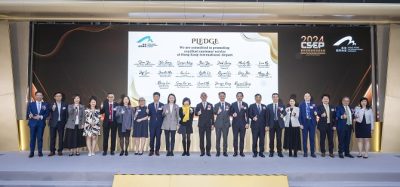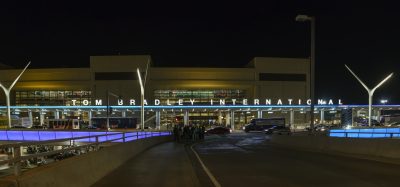A victory for Polish airports
- Like
- Digg
- Del
- Tumblr
- VKontakte
- Buffer
- Love This
- Odnoklassniki
- Meneame
- Blogger
- Amazon
- Yahoo Mail
- Gmail
- AOL
- Newsvine
- HackerNews
- Evernote
- MySpace
- Mail.ru
- Viadeo
- Line
- Comments
- Yummly
- SMS
- Viber
- Telegram
- Subscribe
- Skype
- Facebook Messenger
- Kakao
- LiveJournal
- Yammer
- Edgar
- Fintel
- Mix
- Instapaper
- Copy Link
Posted: 2 October 2012 | Rafal Marczewski, Poland’s National Co-ordinator for Airports | No comments yet
Poland’s football team may not have progressed as much as they would have liked in Euro 2012 but in terms of airport efficiency, the country certainly put in a winning performance over the two weeks.
Mark Glover from International Airport Review spoke to Rafal Marczewski, Poland’s National Co-ordinator for Airports before the tournament regarding the plans for the country’s airport infrastructure throughout the two weeks (International Airport Review Issue 2 2012). In this issue, Mark catches up with Rafal again to see how he felt the airport operations had gone.
Mark Glover: First of all, how are you feeling? Are you fully recovered from the experience?
Rafal Marczewski: Yes, just about! The whole experience was excellent. As a football fan, I felt the whole tournament was a complete success with some excellent football being played with plenty of goals. I remember when we spoke before that I tipped Germany to go all the way but they just fell short – although the eventual winners, Spain, were worthy champions! Of course, the weather was also very good most of the time.
Poland’s football team may not have progressed as much as they would have liked in Euro 2012 but in terms of airport efficiency, the country certainly put in a winning performance over the two weeks.
Mark Glover from International Airport Review spoke to Rafal Marczewski, Poland’s National Co-ordinator for Airports before the tournament regarding the plans for the country’s airport infrastructure throughout the two weeks (International Airport Review Issue 2 2012). In this issue, Mark catches up with Rafal again to see how he felt the airport operations had gone.
Mark Glover: First of all, how are you feeling? Are you fully recovered from the experience?
Rafal Marczewski: Yes, just about! The whole experience was excellent. As a football fan, I felt the whole tournament was a complete success with some excellent football being played with plenty of goals. I remember when we spoke before that I tipped Germany to go all the way but they just fell short – although the eventual winners, Spain, were worthy champions! Of course, the weather was also very good most of the time.
MG: EUROCONTROL’s Operations Report for June 2012 contained figures that confirmed how well Poland’s airports had performed during the competition, concluding that; “Poland and Ukraine had their highest traffic levels in June 2012, but delays during the event were lower than normal for this time of year. Close co-operation between Polish and Ukrainian authorities, Network Managers and Network Partners ensured there was minimal detrimental affect on the network.” Do you agree with this summary?
RM: Very much so and I am pleased that EUROCONTROL have acknowledged our efforts. Overall, I think the whole process went exactly as we were hoping, with everything going according to the plan that we set out in the beginning. I recall our previous conversation and everything that I said we would do has happened, so I am extremely pleased.
EUROCONTROL’s statement mentions the co-operation between all of the Network Managers and Departments and it was this that ultimately helped us achieve our goal. We actually worked extremely closely with EUROCONTROL, discussing the many different scenarios that could take place. We did this a long time before the first ball was kicked, allowing us plenty of preparation time.
As well as working closely with EURO CONTROL, we maintained daily contact with Airport Coordination Limited (ACL), which co-ordinated Warsaw, Gdansk, Poznan and Wroclaw airports throughout the tournament. This was extremely well structured and provided us with the information to maintain efficient flight movements and slots. Ultimately, we integrated well within all the airports and specifically within all of the departments including Air Traffic Control, which was extremely important.
As I mentioned, we were not hit too badly by the weather which meant that flight move – ments remained very smooth. Although Ukraine suffered from torrential downpours, I recall one match between France and the Ukraine that had to be suspended for an hour due to the heavy rain.
Mark Glover: Your preparations seem to be the reason for your success. However, did you come across any problems throughout the tournament?
RM: Actually, I think in this situation it is probably best to use the word ‘challenges’ instead of ‘problems’. When evaluating the whole experience I can honestly look back and say that we didn’t really face any particular problems. When a challenge did arise we had sufficient plans in place to cope with it.
One of the main challenges, however, was the amount of traffic that was passing through our airports. It sounds strange to say this but we had actually forecasted for more than there was. But despite it being a strange scenario, I would prefer to be put into this situation of not enough traffic, instead of being overwhelmed by numbers that we hadn’t accounted for.
Essentially, our forecasts were different to the actual traffic numbers, the traffic got slower whereas we thought there would be an increase. This helped on one level for the airports which were more than capable of coping with such figures, yet like all airports, they would rather see more passengers come through their terminals.
One of the rare challenges that we en – countered was to do with the slot timings between the Ukraine and Poland, yet, owing to our close co-operations with our Ukranian colleagues, these issues were always within our control. To conclude, these were the only real issues we faced. All of the operations ran extremely smoothly.
Mark Glover: We spoke before about the legacy that the tournament will bring to Poland’s airports. Is this legacy still a part of the country’s airport future in terms of its infrastructure?
RM: Yes, of course. We are constantly working towards this legacy. When it was first announced that Poland would be co-hosting these championships we knew that it would be a fantastic opportunity to make significant improvements to our airport system.
Signs of this legacy are already starting to emerge. Warsaw-Modlin Airport recently opened in July (2012) and serves primarily LCC (Low Cost Carrier) airlines into the city. If I may say, it is a wonderful looking airport in terms of its architecture. It looks very slick and modern.
Warsaw’s main airport, Warsaw Chopin, has recently started to integrate Collaborative Decision Making (CDM) into its operations, which at the moment is a huge initiative being undertaken by airports across Europe. This will eventually lead to a huge increase in our efficiency. Being able to collaborate efficiently across all levels of airport disciplines is essential and we see this is an important part of the legacy. We have already established close collaboration between ATC and ground handling agents but CDM will bring us even closer.
We also aim to bring forward our work within the country’s smaller or ‘supporting’ airports. I have already mentioned Modlin Airport but we also expect to grow passenger numbers and commercial revenue at these places.
A legacy that encourages knowledge and co-operation is what I want to see taking place.
Mark Glover: So, with Euro 2012 now over what are your immediate plans?
RM: I will be preparing a report that outlines in detail what we have learnt from hosting a tournament like this as well as pushing on with the legacy within the country. I also plan to speak to other airport associations who are looking to host similar events within their own countries’. Beyond that I am sure I will be looking for new challenges!
About the author
Rafal Marczewski was appointed the General Director’s Representative for EURO 2012 since January 2010 who oversaw all airport operations for this major sporting event. He is also Poland’s National Co-ordinator for Airports in charge of all aspects of the country’s airport infrastructure.
Issue
Related topics
Airport development, Airside operations, Regulation and Legislation


















